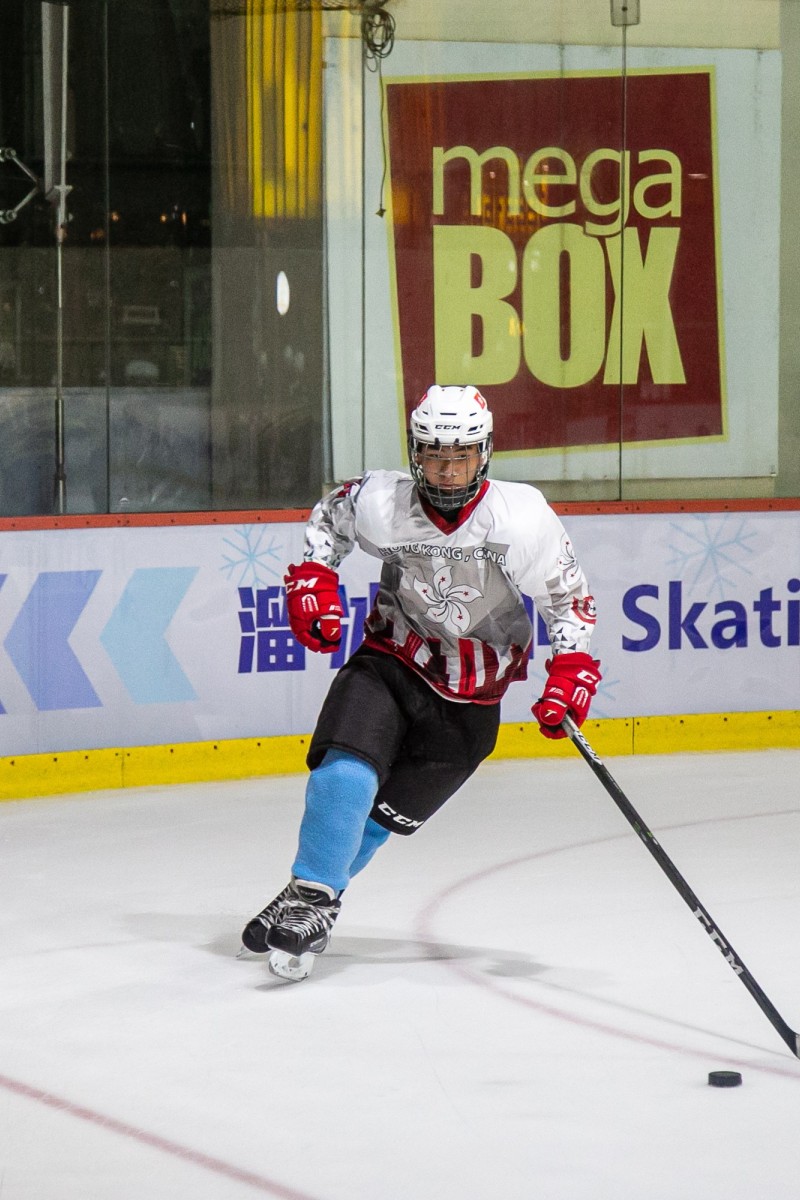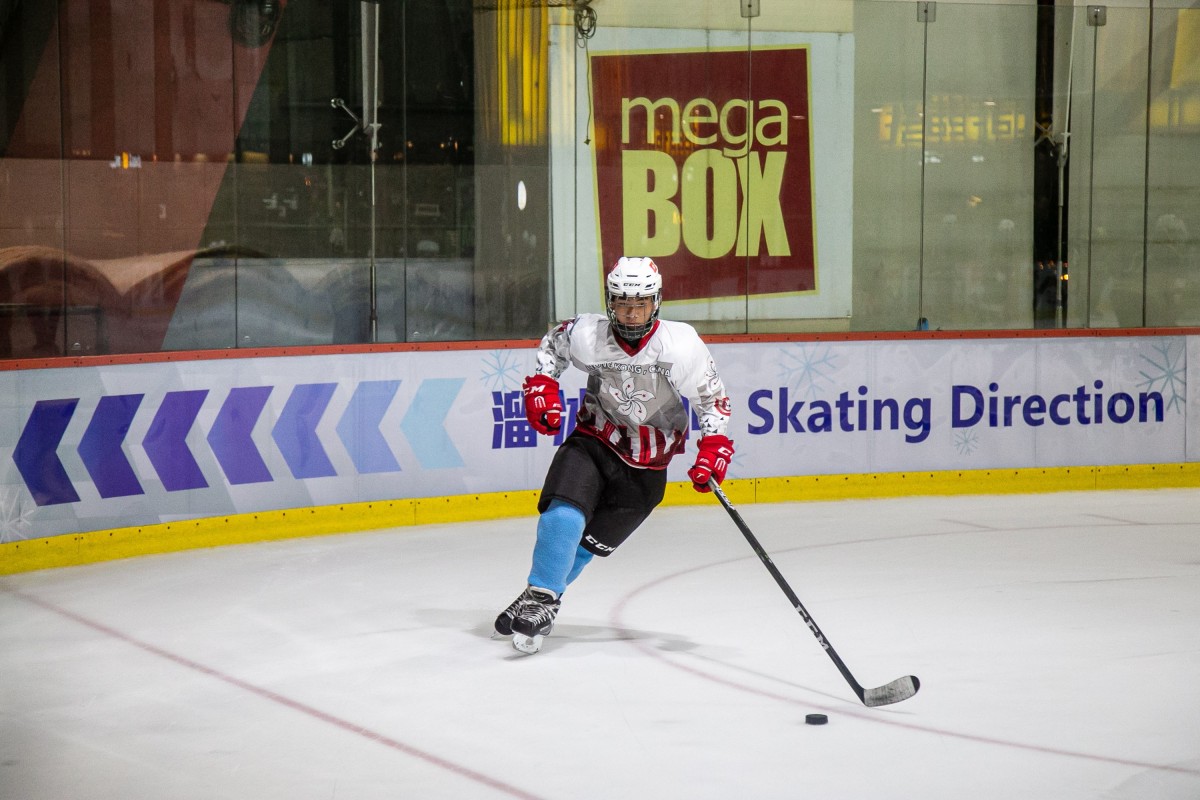
Ice hockey is a fast-paced, high-octane sport with rather unsociable training hours – but Eito Ishizuka and his teammates are used to it
 Eito says playing ice hockey has helped him come out of his shell.
Eito says playing ice hockey has helped him come out of his shell. It is around 10pm when we meet Eito Ishizuka Yui-to at the ice rink in MegaBox, the Kowloon Bay shopping centre. While other stores are closing, the rink is filling up with burly ice hockey players, as the Hong Kong Under 18 Boys’ team get ready to begin their weekly training.
Eito and his teammates are used to practising late at night. Almost all their training sessions and league games finish just a little before midnight. By the time 16-year-old Eito gets home, all he wants to do is take a quick bath and sleep.
The players can’t pretend to enjoy training at such odd hours, but with a shortage of venues in the city, and national teams often having to make way for public skaters during the day, they are left with no choice.
Eito, the son of Chinese and Japanese parents, joined the national junior team a year ago. He admits the late-night trainings have been rough for him, but he is willing to press on for his love for the sport.
“If you love the sport enough, you’ll do what you need to do,” he says.
The gruelling hours the team spend improving their technique, fitness, and team play paid off in April, when they came second at the IIHF 2019 Ice Hockey U18 World Championship (Division III) held in Cape Town, South Africa. It was the second year Eito competed in the tournament. He had still been a rookie the first time around, and he says it felt good to return as a more mature competitor.
“I definitely calmed down a bit this year; the excitement was still there, but I focused more on how to win the games,” he says.
Eito believes the key to winning a game lies in communicating effectively as a team, and making the right call in a split second. Ice hockey is known for its high-speed action – it’s what attracted the Island School student to the sport in the first place. But when everything is happening so fast, it leaves players with very little time to think and decide what to do, such as whether to pass or shoot the puck. The whole game comes down to the reaction time of the players, a skill Eito wants to hone.
“I’m a fast player, but sometimes I find myself not knowing what to do. If you don’t make a timely decision, your opponents will have taken your puck already,” he says.
In addition to being able to think clearly under pressure, players need to work as a team to keep up with the speed of the game, says Eito. The most common way for ice hockey players to communicate with each other in the rink is by shouting, but it is not as easy as it sounds, especially for players who are more introverted.
“Before I joined ice hockey, I was pretty shy, but the sport has helped me to become more expressive,” says Eito, who has been playing for five years now. “In fact, it’s part of the sport – you have to be expressive if you want to play at a higher level.”
Eito has set his sights on making the senior team, with the hope of competing at the senior world championship in five year’s time. But for now, he is working on getting into his best shape for a junior level competition in Beijing in two weeks’ time.
His workload at school is set to increase, too, when he starts Year 13 in August. The key to performing well both on the rink and in your International Baccalaureate examination? Don’t let yourself burn out.
“You need to know when enough is enough,” he says. “When you have trained enough, or when you need to rest.
“Resting is very important, it recharges you for the next thing you’ll be doing, whether it be training or school work.”